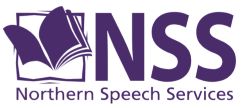Abstract
Advancements in medical technology have contributed to increased rates of preterm birth. Prematurity places infants at high risk for feeding difficulties, however. Early identification and assessment of preterm infant dysphagia is critical to maximize nutrition and hydration, feeding safety, and growth and development. The purpose of this study was to assess the ability of a simulation-based training toolto increase non-health care and entry-level clinical student sensitivity to signs of feeding distress in preterm infants. Data were collected from 60 students (20 masters-level Speech-Language Pathology, 20 undergraduate nursing, 20 undergraduate non-health care) in a pre-test/post-test design. All participants completed a brief simulation training protocol, and accuracy percentages were calculated based on their ability to determine the following: physiological and behavioral signs of feeding distress, oral feeding skill level (OFS), and clinical recommendation for further feeding evaluation. Our results revealed that this simulation-based training improved the identification of behavioral (p < 0.001) and physiological (p < 0.001) signs of feeding distress, OFS level (p < 0.001), and ability to make appropriate clinical recommendations (p < 0.001).This study has identified a successful method to effectively train entry-level clinical and non-clinical students to screen feeding skills in preterm infants. This training approach has the potential to improve identification of feeding distress and to recognize the need for a dysphagia evaluation to optimize clinical outcomes in this fragile population.
Recommended Citation
Broadfoot, C. K.,
&
Estis, J. M.
(2020).
Simulation-Based Training Improves Student Assessment of Oral Feeding Skills in Preterm Infants.
Teaching and Learning in Communication Sciences & Disorders, 4(3).
DOI: https://doi.org/10.30707/TLCSD4.3/FVMX2142





